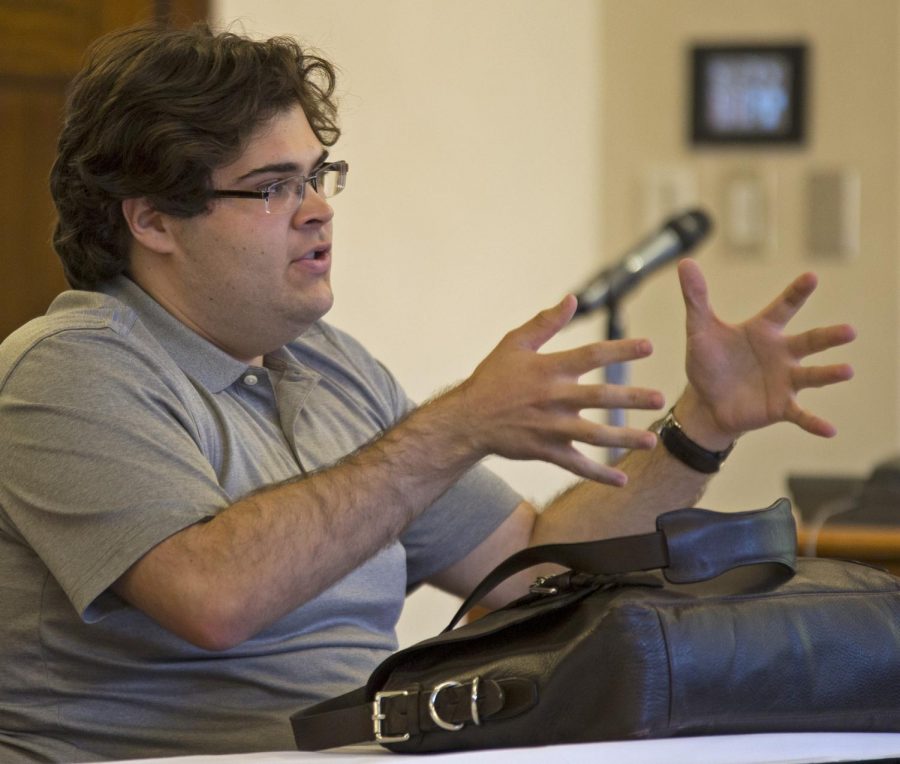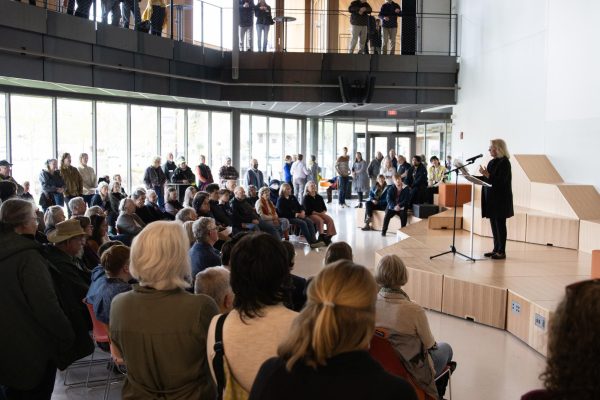Proposed ASOSU bill could give ASOSU more control over student fees
May 24, 2016
In a 4-2-0 vote, senators from the Associated Students of Oregon State University have passed a measure that would transfer the student fees committee from the executive branch to the legislative branch.
The restructuring of the student fee system have been part of ongoing debates since the implementation of Oregon Senate Bill 270, focuses around language in ORS 352.105 that states only a “recognized student government” should have the ultimate authority to make student fee structure decisions for each fiscal year.
JB-07.23, an ASOSU bill that would seek to “Integrate the SIFC into the (Student and Incidental Fees Committee) into the ASOSU Congress,” will now approach the House of Representatives meeting in the Memorial Union Journey Room tonight at 7 p.m.
Parties on both sides continue to discuss whether or not this will be the best decision for students moving forward.
Regardless of the changes brought forth in the bill, there would be no current changes to the overall fee-setting structure, according to SIFC Chair Claire McMorris.
“One of the key objectives was to make the SIFC a more established part of the ASOSU,” McMorris said.
OSU’s previous system, which relied on recommendations from the usually independent Student and Incidental Fees Committee, included the Associated Students of Oregon State University House of Representatives in the decision-making process. The SIFC, however, was not previously part of the ASOSU organization structure.
This became subject to change in May 2015, when the ASOSU judicial branch ruled that the SIFC will be described as “an Independent Committee residing within the executive branch of ASOSU,” according to a Majority opinion from Judicial Council Chair James Knudsen.
What followed was a dispute in the SIFC election process, which resulted in emergency elections for SIFC members and a new chair the fall of 2016. McMorris said the new build could help prevent such occurrences in the future.
“While the situation wasn’t ideal, SIFC was able to continue with processes,” McMorris said.
Right now, JB-07.23 establishes to set a baseline for future adjustments to the entire process with future administrations, McMorris added.
“That doesn’t mean it’s going to be the same forever,” she said. “This legislation really aims to define the SIFC within ASOSU.”
Continued deliberation
Some members of SIFC and other student leaders have expressed concern with the passage of JB-07.23.
Cassidy Nevada Radloff, SIFC member, said ASOSU has not communicated with or interacted well with SIFC throughout the budget season and the year.
“This bill getting passed would only perpetuate the issues that arose this budgeting season around ASOSU’s involvement in the budgeting process,” Radloff said.
Rafid Chowdhury, the Memorial Union president who has sat on the SIFC, believes the overall bill still poses a conflict of interest in regards to the SIFC remaining as an independent student organization.
One potential concern of Chowdhury includes the potential of the budget mediation process being changed.
“People these days don’t like confrontation,” Chowdhury said. “It doesn’t mean you completely disregard the process.”
During winter 2016, the ASOSU and SIFC joint session witnessed mediation in an effort to resolve disagreements on budget allocations for three student fee-funded branches.
The budgets that went into mediation included ASOSU’s own budget, the Student Sustainability Initiative and Performing Arts.
The overall mediation process helps in setting boundaries and helps offer more chances for additional students to join in on the conversation, Chowdhury added.
“We don’t want (students) to feel isolated,” Chowdhury said. “Get involved. We’re not stopping you.”
Sami Al-Abdrabbuh, who sits on the ASOSU House of Representatives, said he plans to vote no on JB-07.23.
“SIFC legislative power is 50 percent of the mediation committee in the case of a conflict with ASOSU,” Al-Abdrabbuh said. “This bill seems to downsize the power to zero percent if the SIFC is changed from an independent to an advisory entity.”
ASOSU senators continued their own deliberation Tuesday night before the majority voted to pass JB-07.23.
First bill passes Senate
Brett Morgan, ASOSU senator and incoming vice-president, said he questioned the independence and role that SIFC would have, even if incoming ASOSU members were part of non-voting seats.
“As the bill stands now, the SIFC would see an increase in seats that are directly associated with the members of ASOSU,” Morgan said.
Kaufman, who also serves as an ASOSU senator, said the bill represents “kind of a compromise” to keeping the SIFC the way it is.
“The budget process has been somewhat disjointed between the SIFC and Congress, and that leads to the mediation committee more often than ASOSU might want,” Kaufman said. “When we say ‘integrate,’ we’re not talking about who has power over who (…) it’s to get the two bodies to work together so when budget season comes around, it moves more efficiently.
Though he could not attend the meeting, ASOSU Vice-President Lyndi Petty read a statement from William Miller, president pro-tempore of the ASOSU senate.
“The SIFC should stay as an independent advisory board under the executive branch,” Miller wrote.
If JB-07.23 passes the House of Representatives, it will then arrive at the desk of ASOSU President Cassie Huber for approval or denial.
Marcus Trinidad contributed to this report.
For more information and a copy of the bill itself, see The Daily Barometer’s Facebook page.


























































































































